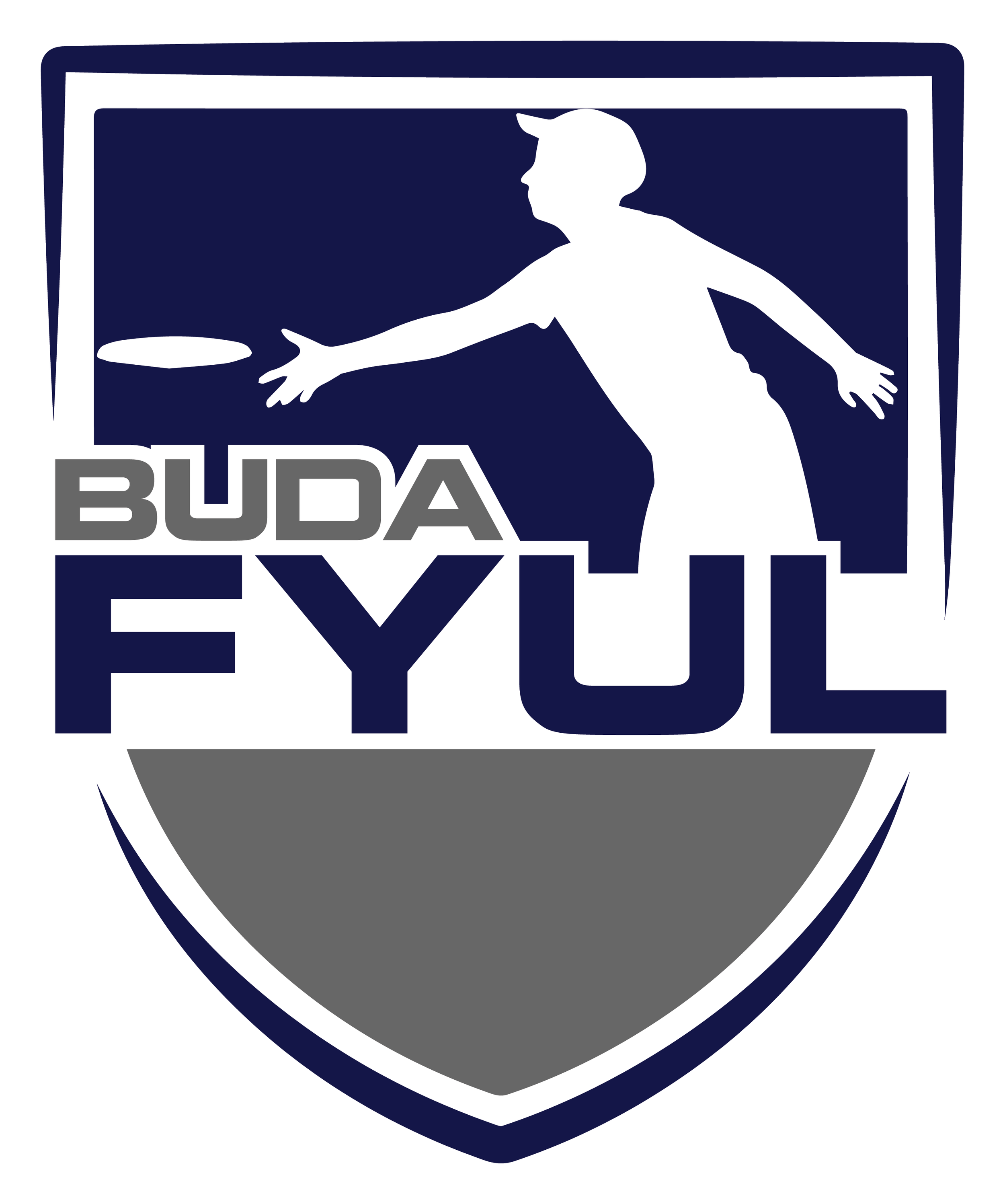Youth Ultimate in 5 Simple Rules
-
Each point begins with both teams lining up in opposite end zones. The defense throws (“pulls”) the disc to the offense. A regulation game has seven players per team. BUDA Youth games are typically played with 5 players per team.
If the pull lands out of bounds from the air (“brick”), play can be started where the disc crossed out of bounds, but in the center of the field. Optionally, play can start where the disc crossed out of bounds in the air.
If the disc rolls out of bounds on the ground, the disc must be played from where the disc crossed out of bounds.
On a turnover and change of possession, the disc begins where it was last inbounds.
-
The disc may be advanced in any direction by completing a pass to a teammate. Players may not run with the disc, but can take a few steps to stop their momentum during a running catch.
When a pass is not completed (e.g. out of bounds, dropped, blocked, intercepted, stalled), the defense immediately takes possession of the disc and becomes the offense from that spot on the field.
The person with the disc (“thrower”) has ten seconds to throw the disc. The defender guarding the thrower (“marker”) counts out loud in a slow and steady pattern typically saying “Stall 1”, Stall2”, until they reach “Stall 10”. If “10” is reached, it is a turnover and change of possession.
-
Each time the offense catches a pass in the defense’s end zone, the offense scores a point. The teams switch direction after every goal, and the next point begins with a new pull by the team that just scored.
A player must have their first point(s) of contact fully inside the end zone. If the player has a foot in the endzone and in the field at the time of the catch (“straddle”) the score is not complete yet. Play continues on.
Out of bounds happens when a player catching the disc does not have their first and only point(s) of contact inbounds. A foot on the boundary line is out of bounds.
-
Players must attempt to avoid physical contact during play. Picks and screens are also prohibited.
When a player initiates physical contact that affects the play, a foul occurs. When a foul causes a player to lose possession, the play resumes as if the possession was retained. If the player that the foul was called against disagrees with the foul call, the play can be contested and reset from the throwers position.
Players are responsible for their own foul calls. Players resolve their own disputes. If an agreement cannot be made, the objecting player can “object” the call, and the play will go back to the previous thrower.
-
The foundation of the rules in ultimate is Spirit of the Game, which places the responsibility for fair play on the player.
Competitive play is encouraged, but never at the expense of respect between players, adherence to the rules, and the basic joy of play.
